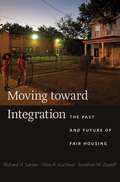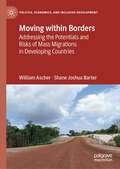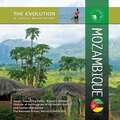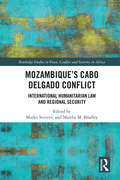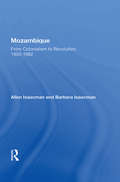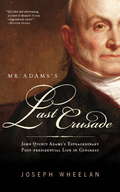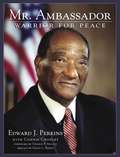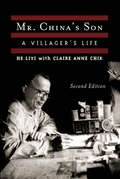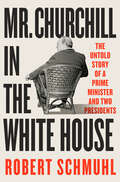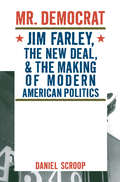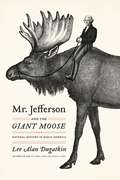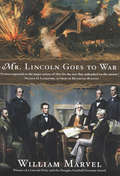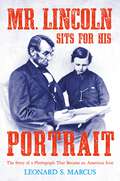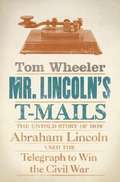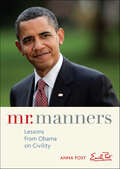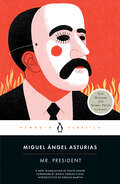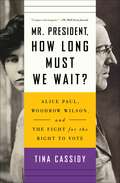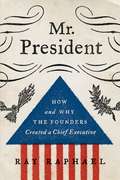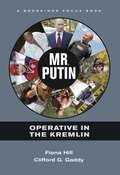- Table View
- List View
Moving toward Integration: The Past and Future of Fair Housing
by Richard H. SanderReducing residential segregation is the best way to reduce racial inequality in the United States. African American employment rates, earnings, test scores, even longevity all improve sharply as residential integration increases. Yet far too many participants in our policy and political conversations have come to believe that the battle to integrate America’s cities cannot be won. Richard Sander, Yana Kucheva, and Jonathan Zasloff write that the pessimism surrounding desegregation in housing arises from an inadequate understanding of how segregation has evolved and how policy interventions have already set many metropolitan areas on the path to integration. Scholars have debated for decades whether America’s fair housing laws are effective. Moving toward Integration provides the most definitive account to date of how those laws were shaped and implemented and why they had a much larger impact in some parts of the country than others. It uses fresh evidence and better analytic tools to show when factors like exclusionary zoning and income differences between blacks and whites pose substantial obstacles to broad integration, and when they do not. Through its interdisciplinary approach and use of rich new data sources, Moving toward Integration offers the first comprehensive analysis of American housing segregation. It explains why racial segregation has been resilient even in an increasingly diverse and tolerant society, and it demonstrates how public policy can align with demographic trends to achieve broad housing integration within a generation.
Moving within Borders: Addressing the Potentials and Risks of Mass Migrations in Developing Countries (Politics, Economics, and Inclusive Development)
by William Ascher Shane Joshua BarterThis book highlights the attention that policymakers, activists, and the public should pay to internal migration. Although prominent research has analyzed particular types of internal migration, especially urbanization and internally displaced persons (IDPs), the narrow scope of existing studies cannot capture the overlaps of motivation and circumstances that pose serious policy dilemmas. The book is distinctive in examining the full range of modes and motives of internal migration: state-sponsored or unsponsored, coerced or voluntary, land-seeking or market-seeking, urban or rural, and so on. While approaching internal migration holistically, it also emphasizes how it is distinct from international migrations, especially the central role of the state, whose internal divisions and defensive reactions to challenges often play decisive roles in governing migration. The writing style is geared towards accessibility, making it appropriate for college- and graduate-level students as well as the broader public.
Moyers on America: A Journalist and His Times
by Bill MoyersThe Peabody Award–winning journalist shares stories and insights into our country and the crises we face in an &“eloquent selection of . . . commentaries&” (Publishers Weekly, starred review). Millions of Americans have invited Bill Moyers into their homes over the years. With television programs covering topics from American history, politics, and religion to the role of media and the world of ideas, he has become one of America&’s most trusted journalists. Now Moyers presents, for the first time, a powerful statement of his own personal beliefs—political and moral. Combining illuminating forays into American history with candid comments on today&’s politics, Moyers delivers perceptive and trenchant insights into the American experience. From his early years as a Texas journalist to his role as a founding organizer of the Peace Corps, top assistant to President Lyndon Johnson, publisher of Newsday, senior correspondent and analyst for CBS News, and producer of many of public television&’s groundbreaking series, Moyers has been actively engaged in some of the most volatile episodes of the past fifty years. Drawing from these experiences, he shares his unique understanding of American politics and an enduring faith in the nation&’s promise and potential. Whether reflecting on today&’s media climate, corporate scandals, or religious and political upheavals, Moyers on America recovers the hopes of the past to establish their relevance for the present. &“Not only a good reporter . . . a first-rate storyteller.&” —The Boston Globe
Mozambican Civil War: Marxist-Apartheid Proxy, 1977–1992 (Cold War, 1945–1991)
by Stephen EmersonHow superpower interests and Cold War politics exacerbated a war in Africa that left millions dead or displaced. As the Cold War raged on in the 1970s and 1980s, much of southern Africa, from Angola to Mozambique, became caught up in the superpower competition as local and regional proxies for both Moscow and Washington fought it out on the battlefield. Thus, the struggle to determine the future of a newly independent Mozambique was shaped by multiple factors beyond the control of its people in the course of its sixteen-year conflict from 1977–1992. The longevity and ferocity of the Mozambican war would leave an estimated one million dead, millions more displaced and homeless, and a country in ruins. From the rise of the Resistência Nacional Moçambicana, or Renamo, in 1977 as a Rhodesian weapon against Zimbabwean nationalist guerrillas operating in Mozambique, through South African patronage in the 1980s and to Renamo&’s evolution as a self-sufficient insurgency, the forces of Mozambican nationalism became inexorably intertwined with the geopolitics of the region and the international manifestations of the Cold War. Thus, both government and rebel forces found themselves repeatedly beholden to external interests—be it American, Soviet, Cuban, South African, or Rhodesian—as each sought to advance its own agenda and future vision of the country. However, it would be Mozambicans themselves who spilled their blood in a clash of men and arms that spanned the length and breadth of the country—and ultimately this is their story of sacrifice and triumph. Includes maps, photos, and a glossary
Mozambique (The Evolution of Africa's Major Nations)
by Tanya MulroyIn 1498 Portuguese explorer Vasco da Gama became the first European to set foot on the shores of Mozambique. By the next century, this region along the southeastern edge of Africa had become a colony of Portugal. For almost 500 years the region remained under Portuguese rule, until years of armed conflict and struggle brought independence in 1975. The warfare did not end, however, as the brutal civil war that followed lasted until the early 1990s. Although peace has come to Mozambique, its people continue to face many challenges, including severe droughts and devastating cyclones. However, the fledgling democracy has made economic progress. Today, the government is working to alleviate poverty and increase the standard of living for the people of Mozambique.
Mozambique's Cabo Delgado Conflict: International Humanitarian Law and Regional Security (Routledge Studies in Peace, Conflict and Security in Africa)
by Marko Svicevic Martha M. BradleyThis book uses a multidisciplinary approach to examine the ongoing conflict in Mozambique’s Cabo Delgado province, which has killed thousands and displaced a million people since 2017.The book investigates how the conflict developed, the regional and international responses and its wider implications. From a broad range of African perspectives, the book addresses issues related to the conflict including international humanitarian law, regional security and terrorism. Part I assesses the regional security concerns of the conflict, the success of cross-border counter-terrorism operations and their implications for the southern African region. Part II focuses on the conflict in relation to international humanitarian law. It discusses the Islamic State's presence in the region, the trajectory and issues pertaining to sexual and gender-based violence and the relationship between the conflict and the environment. Finally, Part III examines regional and continental responses to the conflict, from the military intervention by the Southern African Development Community and Rwanda, to the perceived inaction of the African Union.The first comprehensive analysis of the conflict in Cabo Delgado, this book will be of interest to scholars and practitioners of international humanitarian law, security, African politics, war and conflict studies, terrorism and human rights.
Mozambique: From Colonialism To Revolution, 1900-1982 (Ohio Short Histories Of Africa Ser.)
by Barbara Isaacman Allen IsaacmanDrawing on oral interviews as well as written primary sources, the authors of this book focus on the changing and complex Mozambican reality. They focus their study on the changing and complex Mozambican reality to avoid depicting the colonized people as passive victims. .
Mozi: A Study and Translation of the Ethical and Political Writings
by John Knoblock Jeffrey RiegelThis volume is a study and translation of thirty-six chapters in the Mozi that are concerned largely with political and ethical philosophy; the remaining seventeen chapters are related to military defense and logic.
Mr Brodrick's Army (Winston S. Churchill Early Speeches)
by Winston S. ChurchillThis eBook reproduces one of Churchill&’s early political pamphlets—a collection of speeches opposing peacetime military expansion in 1903. In 1903, Winston Churchill was a newly elected Member of Parliament, already making a name for himself with his brash yet brilliant oration and passionate political convictions. During this time, John Brodrick, the Secretary of State for War, proposed an expansion of Britain's peacetime military—a plan which Churchill strongly opposed. Churchill attacked Brodrick's plan in six fiery speeches that galvanized the opposition and left Brodrick politically isolated. When it was first printed, Mr. Brodrick's Army made all six speeches available to the public. Now, with fewer than twenty first editions currently in existence, it is the rarest of Churchill's published works. This eBook edition makes this historically significant document available to readers everywhere.
Mr. Adams's Last Crusade: John Quincy Adams's Extraordinary Post-Presidential Life in Congress
by Joseph WheelanWhen John Quincy Adams?the sixty-three-year-old former president, U. S. senator, secretary of state, and diplomat?was elected to the House of Representatives by his Massachusetts neighbors, he embarked on a spectacular late-life career. He became CongressOCOs most acerbic and influential critic of slavery as well as a tireless proponent for human freedoms and First Amendment rights. This remarkable congressional career utterly transformed him, the publicOCOs perception of him, and his legacy?in many ways redeeming his failed presidency. "Mr. AdamsOCOs Last Crusade" renders an insightful portrait of a man who placed his country above politics. "
Mr. Ambassador: Warrior for Peace
by Edward J. Perkins Connie CronleyThis book is about an inspirational Foreign Service Officer Edward J. Perkins, his life and career as the first black ambassador in apartheid South Africa, and various other accomplishments during his tenure which has left lasting impressions and tremendous impact on other diplomats.
Mr. China's Son: A Villager's Life, Second Edition
by Liyi HeThrough the accounts of a prominent Chinese villager and his family, the author examines the years leading up to Chinas Cultural Revolution and its impact on intellectual society.. This book recounts, through one individual's tortured life and a family's struggle, how a generation of Chinese intellectuals was lost to the harsh experiences of the labor camps. It reveals in detail what happened in China in the 1950's before the Cultural Revolution. He Liyi's exile into the labor camps and, upon his release, into the life of a poor peasant is told with a stunning honesty and richness of detail. His miraculous teaching astounds the reader with its description of the capricious nature of Chinese officialdom. }He Liyi belongs to one of China's minorities, the Bai, and he lives in a remote area of northwestern Yunnan Province. In 1979, his wife sold her fattest pig to buy him a shortwave radio. He spent every spare moment listening to the BBC and VOA in order to improve the English he had learned at college between 1950 and 1953. For "further practice," he decided to write down his life story in English. Humorous and unfiltered by translation, his autobiography is direct and personal, full of richly descriptive images and phrases from his native Bai language.At the time of He Liyi's graduation, English was being vilified as the language of the imperialists, so the job he was assigned had nothing to do with his education. In 1958, he was labeled a rightist and sent to a "reeducation-through-labor farm." Spirited away by truck on the eve of his marriage, Mr. he spent years in the labor camp, where he schemed to garner favor from the authorities, who nevertheless shamed him publicly and told him that all his problems "belong to contradictions between the people and the enemy." After his release in 1962, the talented Mr. He had no choice but to return to his native village as a peasant. His stratagems for survival, which included stealing "nightsoil" from public toilets and extracting peach-pit oil from thousands of peaches, personify the peasant's universal struggle to endure those difficult years.He Liyi's autobiography recounts nearly all the major events of China's recent history, including the Japanese occupation, the Communist victory over the Nationalists in 1949, Mao's disastrous Great Leap Forward and Cultural Revolution, the experience of labor camps, and changes brought about by China's dramatic re-opening to the world since Deng Xiaoping came to power in 1978. No other book so poignantly reveals the travails of the common person and village life under china's tempestuous Communist government, which He Liyi ironically refers to as "Mr. China." Yet he describes his saga of poverty and hardship with humor and a surprising lack of bitterness. And rarely has there been such an intimate, frank view of how a Chinese man thinks and feels about personal relationships, revealed in dialogue and letters to his two wives.He Liyi's autobiography stands as perhaps the most readable and authentic account available in English of life in rural China. }
Mr. Churchill in the White House: The Untold Story of a Prime Minister and Two Presidents
by Robert Schmuhl“Robert Schmuhl admirably captures the vitality and cunning of Churchill’s D.C. residency with consummate skill, colorful anecdotes, and crisp historical analysis.” —Douglas Brinkley Well into the twenty-first century, Winston Churchill continues to be the subject of scores of books. Biographers portray him as a soldier, statesman, writer, painter, and even a daredevil, but Robert Schmuhl, the noted author and journalist, may be the first to depict him as a demanding, indeed exhausting White House guest. For the British prime minister, America’s most famous residence was “the summit of the United States,” and staying weeks on end with the president as host enhanced his global influence and prestige, yet what makes Churchill’s sojourns so remarkable are their duration at critical moments in twentieth-century history. From his first visit in 1941 to his last one eighteen years later, Churchill made himself at home in the White House, seeking to disprove Benjamin Franklin’s adage that guests, like fish, smell after three days. When obliged to be attired, Churchill shuffled about in velvet slippers and a tailored-for-air-raids “siren suit,” resembling a romper. In retrospect, these extended stays at 1600 Pennsylvania Avenue take on a new level of diplomatic and military significance. Just imagine, for example, Ukraine’s president Volodymyr Zelensky spending weeks at America’s most powerful address, discussing war strategy and access to weaponry, as Churchill did during the 1940s. Drawing on years of research, Schmuhl not only contextualizes the unprecedented time Churchill and President Franklin D. Roosevelt spent together between 1941 and 1945, but he also depicts the individual figures involved: from Churchill himself to “General Ike,” as he affectionately called Dwight D. Eisenhower, to Harry Truman, and not to mention the formidable Eleanor Roosevelt, who resented Churchill’s presence in the White House and wanted him to occupy the nearby Blair House instead (which, predictably, he did not do). Mr. Churchill in the White House presents a new perspective on the politician, war leader, and author through his intimate involvement with one Democratic and one Republican president during his two terms as prime minister. Indeed, Churchill had his own “Special Relationship” with these two presidents. Diaries, letters, government documents, and memoirs supply the archival foundation and color for each Churchill visit, providing a wholly novel perspective on one of history’s most perplexing and many-faceted figures.
Mr. Democrat: Jim Farley, the New Deal and the Making of Modern American Politics
by Daniel ScroopScroop (history, U. of Liverpool) takes on the background of this most powerful and neglected man, detailing the growth of Farley's perception that politics is a noble profession requiring the support and acumen of business. Scroop makes it clear that Franklin Delano Roosevelt's choice of Farley as his campaign manager was well-reasoned and that although Farley made mistakes, more mistakes were made about him by those who feared his motives and abilities just as they feared every other architect of the New Deal. Annotation ©2006 Book News, Inc. , Portland, OR (booknews. com)
Mr. Jefferson and the Giant Moose: Natural History in Early America
by Lee Alan DugatkinIn the years after the Revolutionary War, the fledgling republic of America was viewed by many Europeans as a degenerate backwater, populated by subspecies weak and feeble. Chief among these naysayers was the French Count and world-renowned naturalist Georges-Louis Leclerc de Buffon, who wrote that the flora and fauna of America (humans included) were inferior to European specimens. Thomas Jefferson--author of the Declaration of Independence, U. S. president, and ardent naturalist--spent years countering the French conception of American degeneracy. His Notes on Virginia systematically and scientifically dismantled Buffon's case through a series of tables and equally compelling writing on the nature of his home state. But the book did little to counter the arrogance of the French and hardly satisfied Jefferson's quest to demonstrate that his young nation was every bit the equal of a well-established Europe. Enter the giant moose. The American moose, which Jefferson claimed was so enormous a European reindeer could walk under it, became the cornerstone of his defense. Convinced that the sight of such a magnificent beast would cause Buffon to revise his claims, Jefferson had the remains of a seven-foot ungulate shipped first class from New Hampshire to Paris. Unfortunately, Buffon died before he could make any revisions to his Histoire Naturelle,but the legend of the moose makes for a fascinating tale about Jefferson's passion to prove that American nature deserved prestige. In Mr. Jefferson and the Giant Moose,Lee Alan Dugatkin vividly recreates the origin and evolution of the debates about natural history in America and, in so doing, returns the prize moose to its rightful place in American history.
Mr. Lincoln Goes to War
by William MarvelAn account of how America&’s greatest crisis began, by &“the Civil War&’s master historical detective&” (Stephen W. Sears, author of Chancellorsville). This groundbreaking book investigates the mystery of how the Civil War began, reconsidering the big question: Was it inevitable? The award-winning author of Andersonville and Lincoln&’s Autocrat vividly recreates President Abraham Lincoln&’s first year in office, from his inauguration through the rising crisis of secession and the first several months of the war. Drawing on original sources and examining previously overlooked factors, he leads the reader inexorably to the conclusion that Lincoln not only missed opportunities to avoid war but actually fanned the flames—and often acted unconstitutionally in prosecuting the war once it had begun. With a keen eye for the telling detail, on the battlefield as well as in the White House, this is revisionist history at its best, not sparing anyone, even Abraham Lincoln. &“A brilliant narrative that reveals the possibilities of the past that were squandered by historical figures who seem so unassailable and godlike to us today.&” —Peter S. Carmichael, author of The Last Generation &“The most provocative account of events in 1861 in a generation. Readers who think they understand the Civil War&’s first year and the roles played by Abraham Lincoln, Nathanial Lyon, Charles Stone, and a host of others should brace themselves for a bold new perspective.&” —A. Wilson Greene, author of Breaking the Backbone of the Rebellion
Mr. Lincoln Sits for His Portrait: The Story of a Photograph That Became an American Icon
by Leonard S. MarcusMr. Lincoln Sits for His Portrait is a unique middle-grade depiction of America’s sixteenth president, through the story of one famous photograph, written by award-winning author Leonard S. Marcus. On February 9, 1864, Abraham Lincoln made the mile-long walk from the Executive Mansion to photographer Mathew Brady's Washington, DC, studio, to be joined there later by his ten-year-old son, Tad. With a fractious re-election campaign looming that year, America's first media-savvy president was intent on securing another portrait that cast him in a favorable light, as he prepared to make the case for himself to a nation weary of war. At least four iconic pictures were made that day. One was Lincoln in profile, the image that later found its way onto the penny; two more would be adapted for the 1928 and 2008 five-dollar bills. The fourth was a dual portrait of Lincoln and Tad. The pose, featuring Lincoln reading to his son, was a last-minute improvisation, but the image that came of it was—and remains—incomparably tender and enduringly powerful. Immediately after the president’s murder the following year, the picture of Lincoln reading to his son became a mass-produced icon—a cherished portrait of a nation’s fallen leader, a disarmingly intimate record of a care-worn father's feeling for his child, and a timeless comment on books as a binding force between generations.
Mr. Lincoln's High-tech War: How The North Used the Telegraph, Railroads, Surveillance Balloons, Ironclads, High-powered Weapons, and More to Win the Civil War
by Roger Macbride Allen Thomas B. AllenThis history lesson for general readership walks the reader through the American Civil War by way of the technologies that allowed Abraham Lincoln and the Union forces to triumph over the Confederacy. The text, loosely laid out in the style of a 19th century newspaper, is supported by b&w primary source materials (photographs, paintings, and political cartoons), as well as contemporary illustrations. Chapters address the involvement in the war of military mass production and the Dahlgren gun, the hot-air balloon, land torpedoes (used by the South), naval technology, photography, the Spencer Repeating Rifle, and civic constructions such as bridges and railroads, among other technologies. Annotation ©2009 Book News, Inc. , Portland, OR (booknews. com)
Mr. Lincoln's T-Mails: The Untold Story of How Abraham Lincoln Used the Telegraph to Win the Civil War
by Tom WheelerThe story of how Lincoln adapted to a new medium of communication during a period of social and technological innovation.
Mr. Manners: Lessons from Obama on Civility
by Anna PostIn Mr. Manners: Lessons from Obama on Civility, author and etiquette maven Anna Post demonstrates that President Obama is more than our political leader—he's also a worthy role model when it comes to good manners.His intelligence and good looks notwithstanding, there's no doubt President Obama's courteousness played a significant role in his swift and historic rise to the highest office in the land. In Mr. Manners, Post breaks down the president's manners, from the slightest kind gesture to the grandest of considerate deeds, and shows how we can apply such thoughtfulness in our own daily lives.With photography capturing President Obama committing everyday acts of civility and complemented by Post's fun yet authoritative commentary, Mr. Manners graciously reinforces the case that Emily Post and her descendants have been making for decades: courtesy is in our nation's best interest.
Mr. President
by Miguel Ángel AsturiasNobel Prize–winning Guatemalan author Miguel Ángel Asturias&’s masterpiece—the original Latin American dictator novel and pioneering work of magical realism—in its first new English translation in more than half a century, featuring a foreword by Nobel laureate Mario Vargas Llosa A Penguin ClassicIn an unnamed country, an egomaniacal dictator schemes to dispose of a political adversary and maintain his grip on power. As tyranny takes hold, everyone is forced to choose between compromise and death. Inspired by life under the regime of President Manuel Estrada Cabrera of Guatemala, where it was banned for many years, and infused with exuberant lyricism, Mayan symbolism, and Guatemalan vernacular, Nobel Prize winner Miguel Ángel Asturias&’s magnum opus is at once a surrealist masterpiece, a blade-sharp satire of totalitarianism, and a gripping portrait of psychological terror.
Mr. President, How Long Must We Wait?: Alice Paul, Woodrow Wilson, and the Fight for the Right to Vote
by Tina CassidyIn this &“heroic narrative&” (The Wall Street Journal), discover the inspiring and timely account of the complex relationship between leading suffragist Alice Paul and President Woodrow Wilson in her fight for women&’s equality. Woodrow Wilson lands in Washington, DC, in March of 1913, a day before he is set to take the presidential oath of office. He is surprised by the modest turnout. The crowds and reporters are blocks away from Union Station, watching a parade of eight thousand suffragists on Pennsylvania Avenue in a first-of-its-kind protest organized by a twenty-five-year-old activist named Alice Paul. The next day, The New York Times calls the procession &“one of the most impressively beautiful spectacles ever staged in this country.&” Mr. President, How Long Must We Wait? weaves together two storylines: the trajectories of Alice Paul and Woodrow Wilson, two apparent opposites. Paul&’s procession of suffragists resulted in her being granted a face-to-face meeting with President Wilson, one that would lead to many meetings and much discussion, but little progress for women. With no equality in sight and patience wearing thin, Paul organized the first group to ever picket in front of the White House lawn—night and day, through sweltering summer mornings and frigid fall nights. From solitary confinement, hunger strikes, and the psychiatric ward to ever more determined activism, Mr. President, How Long Must We Wait? reveals the courageous, near-death journey it took, spearheaded in no small part by Alice Paul&’s leadership, to grant women the right to vote in America. &“A remarkable tale&” (Kirkus Reviews) and a rousing portrait of a little-known feminist heroine, this is an eye-opening exploration of a crucial moment in American history one century before the Women&’s March.
Mr. President: How and Why the Founders Created a Chief Executive
by Ray RaphaelThe little-known story of the dramatic political maneuverings and personalities behind the creation of the office of the president, with ramifications that continue to this day. On June 1, 1787, when the Federal Convention first talked of establishing a new executive branch, James Wilson moved that "the Executive consist of a single person." To us this might sound obvious, but not so at the time. Americans had just won their independence from an autocratic monarch, and they feared that a single leader might commandeer power or oppress citizens. Should the framers even flirt with one-man rule? For the first and only time that summer, there was silence. Not one of the loquacious delegates dared speak up. Eventually Benjamin Franklin rose, then others. James Madison, Alexander Hamilton, and George Mason joined the debate, and for three months their deliberations continued. By early September the framers had made up their minds. A chief executive, the "president," would be appointed by Congress to serve for seven years. He could not be reelected, and his powers were tightly constrained. He could neither negotiate treaties nor appoint Supreme Court justices and ambassadors. The Senate would do all that. Suddenly, less than two weeks before the convention adjourned, all this changed. How? And who made it happen? Enter Gouverneur Morris, the flamboyant, peg-legged hero of this saga, who pushed through his agenda with amazing political savvy and not a little bluster and deceit. For the first time, by focusing closely on the give-and-take of the convention's dynamics, Ray Raphael reveals how politics and personalities cobbled together a lasting, but flawed, institution. Charting the presidency as it evolved during the administrations of Washington, Adams, and Jefferson, Raphael shows how, given the Constitution's broad outlines, the president's powers could easily be augmented but rarely diminished. Today we see the result--an office that has become more sweeping, more powerful, and more inherently partisan than the framers ever intended. And the issues of 1787--whether the Electoral College, the president's war powers, or the extent of executive authority--continue to stir our political debates.
Mr. Putin
by Fiona Hill Clifford G. GaddyWho is Vladimir Putin? Observers have described him as a "man from nowhere"--someone without a face, substance, or soul. Russia experts Fiona Hill and Clifford Gaddy argue that Putin is in fact a man of many and complex identities. Drawing on a range of sources, including their own personal encounters, they describe six that are most essential: the Statist, the History Man, the Survivalist, the Outsider, the Free Marketeer, and the Case Officer. Understanding Putin's multiple dimensions is crucial for policymakers trying to decide how best to deal with Russia.Hill and Gaddy trace the identities back to formative experiences in Putin's past, including his early life in Soviet Leningrad, his KGB training and responsibilities, his years as deputy mayor in the crime and corruptionridden city of St. Petersburg, his first role in Moscow as the "operative" brought in from the outside by liberal reformers in the Kremlin to help control Russia's oligarchs, and his time at the helm of a resurgent Russian state. The authors then examine the nature of the political system Putin has built, explaining it as a logical result of these six identities.Vladimir Putin has his own idealized view of himself as CEO of "Russia, Inc." But rather than leading a transparent public corporation, he runs a closed boardroom, not answerable to its stakeholders. Now that his corporation seems to be in crisis, with political protests marking Mr. Putin's return to the presidency in 2012, will the CEO be held accountable for its failings?"For more than a dozen years--the equivalent of three American presidential terms-- Vladimir Putin has presided over the largest nation on the planet, the second most powerful nuclear arsenal, and massive natural resources. Yet there is still debate about who he really is. Fiona Hill and Clifford Gaddy have gone a long way in answering that question, starting with the title, which makes a crucial point: even though 'Mr. Putin' was, in his upbringing and early career, a prototype of the Soviet man, he's no longer 'Comrade Putin.' His aim is not the restoration of communism. He has made a deal with the capitalists who have thrived in Russia over the past two decades: they support him in the exercise of his political power, and he supports them in amassing their fortunes."--from the foreword by Strobe Talbott
Mr. Putin
by Fiona Hill Clifford G. GaddyVladimir Putin has his own idealized view of himself as CEO of "Russia, Inc." But rather than leading a transparent public corporation, he runs a closed boardroom, not answerable to its stakeholders. Now that his corporation seems to be in crisis, with political protests marking Mr. Putin's return to the presidency in 2012, will the CEO be held accountable for its failings? "For more than a dozen years-the equivalent of three American presidential terms- Vladimir Putin has presided over the largest nation on the planet, the second most powerful nuclear arsenal, and massive natural resources. Yet there is still debate about who he really is. Fiona Hill and Clifford Gaddy have gone a long way in answering that question, starting with the title, which makes a crucial point: even though 'Mr. Putin' was, in his upbringing and early career, a prototype of the Soviet man, he's no longer 'Comrade Putin.' His aim is not the restoration of communism. He has made a deal with the capitalists who have thrived in Russia over the past two decades: they support him in the exercise of his political power, and he supports them in amassing their fortunes."-from the foreword by Strobe Talbott
